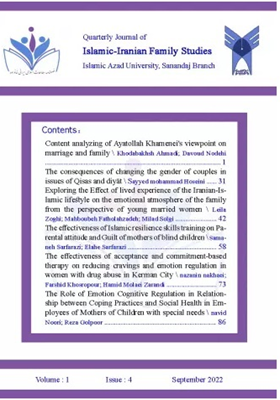The consequences of changing the gender of couples in issues of Qisas and diyāt
Subject Areas : Islamic-Iranian Family Studies Journal
1 - Assistant Professor, Department of Islamic Studies, Faculty of literarture and Humanities, Razi University , Kermanshah, Iran
Keywords:
Abstract :
Aim: Since in the Islamic legal system, men and women are retaliated against each other, the main purpose of the present study is to answer the question: what effect does a change in the gender of the criminal or the victim have on Qisas and the amount of diyā? Method: This research applies the descriptive-analytical method and analyzes the arguments of Imamiyyah jurists. Findings: The findings of this study indicated that in the issue of diyā, gender change does not make any difference in the diyā that was determined as the responsibility of the person before this, but diyā after gender change is calculated according to the new gender. Regarding Qisas, if a woman commits a crime that requires retribution before changing her gender, gender change does not affect her Qisas. But if the perpetrator of the crime is a man and next of kin of the slain person asks for his Qisas, he must pay the difference in diyā, and after that the sentence of the murderer will be executed. If there is a delay in the execution of the sentence of Qisas and the gender of the killer is changed to a woman, then there are two possibilities for Qisas. Conclusion: According to the correct probability, after the gender change, the murderer's sentence, which was proportional to his gender, will be proportional to his new gender.
_||_

